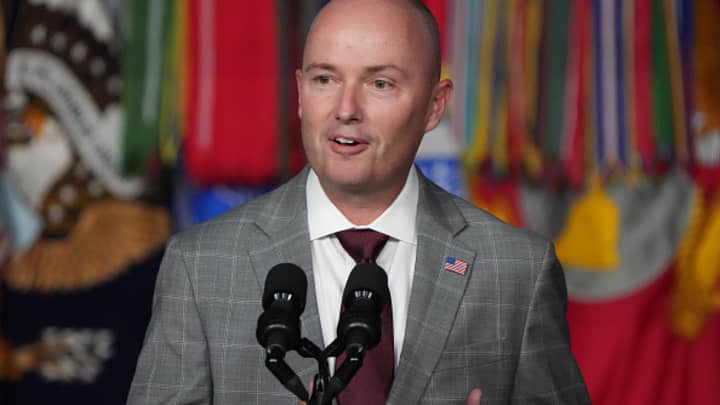
Utah is the latest state to file suit against TikTok, alleging the social media site misled its citizens about its relationship to its Chinese parent company and deceptively touted its platform as safe.
TikTok has already faced similar lawsuits from and , while Montana has to ban the app altogether, a move that TikTok and creators have . The action among states targeting TikTok stands in contrast to stagnation in Washington, where proposed legislation that could lead to a ban of the app has stalled following an . It underscores how states have taken the lead on many tech policy issues given the difficulty of moving legislation through Congress.
Utah Gov. Spencer Cox invoked research about social media's effect on adolescents, including a recent , in the lawsuit Tuesday.
"Social media companies must be held responsible for the harms they are causing," Cox said in a statement.
In the , filed in state court, Attorney General Sean Reyes alleges TikTok violated Utah's consumer protection laws in three ways:
"TikTok has industry-leading safeguards for young people, including an automatic 60-minute time limit for users under 18 and parental controls for teen accounts," a TikTok spokesperson said in a statement in response to the lawsuit. "We will continue to work to keep our community safe by tackling industry-wide challenges."
TikTok's ownership by a China-based company has been at the crux of many government officials' concerns about the company. That's because Chinese law could compel companies based there to hand over internal information if the government cites national security concerns.
The other elements of the suit touch on concerns that many people have about social media platforms in general, not just TikTok. Still, the lawsuit hones in on features such as TikTok's vertical swipe to load new videos, likening it to a slot machine that keeps users coming back for a dopamine rush.
Utah has been particularly active in seeking to protect its citizens from what it sees as the harmful effects of social media. Earlier this year, Cox that would implement sweeping new restrictions aiming to protect kids online. For example, they would restrict the hours minors are able to access social media platforms, require age verification to maintain an account and give parents a way to access their kids' accounts, including private messages.
Privacy and LGBTQ+ rights advocates have warned that such restrictions could backfire by requiring more invasive practices to verify the age of all users. Additionally, giving parents broad access to kids' accounts could put children in abusive homes in harm's way, opponents of the legislation have argued.



